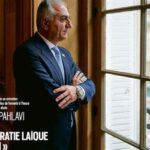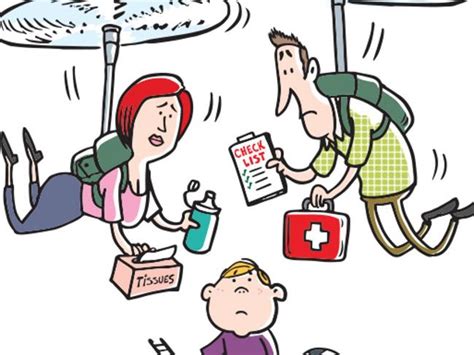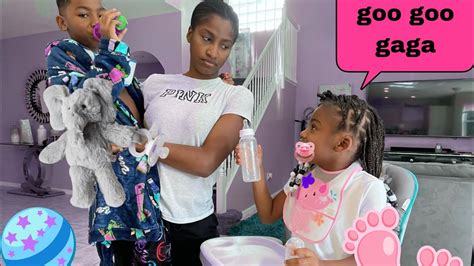
Dear Abby advises a parent to intervene and protect their son from ongoing bullying by a former in-law, emphasizing the importance of setting boundaries and prioritizing the child’s well-being.
A parent distressed by the continued bullying of their son by a former in-law sought advice from Dear Abby, the long-running advice column. The concerned parent, writing under the pseudonym “Distressed Dad in California,” detailed how their ex-wife’s mother persistently targets their son with disparaging remarks about his appearance, intelligence, and abilities. Dear Abby’s response firmly directed the father to shield his son from this abuse and establish clear boundaries to prevent future incidents.
The core of the advice centers around the parent’s responsibility to protect their child from emotional harm. “You and your son should not be subjected to this woman’s nastiness,” Abby stated, underscoring the severity of the situation. She advocated for a direct and decisive approach, recommending that the father communicate to his former mother-in-law that any further derogatory comments directed at his son would result in her being barred from seeing him.
The situation underscores the complex dynamics that can persist after divorce, particularly when children are involved. Extended family members, even after a marital separation, can continue to exert influence, sometimes negatively, on the children. In this case, the former grandmother-in-law’s actions are described as bullying, which can have lasting psychological effects on the child.
Dear Abby’s advice highlights the necessity for parents to prioritize their children’s emotional safety, even if it means confronting uncomfortable or challenging relationships with former family members. The column emphasizes that a parent’s primary duty is to advocate for their child’s well-being and to create a stable and supportive environment, free from unnecessary stress and negativity. The advice column acknowledges the difficulty of the situation but firmly asserts the importance of parental intervention to protect the child from ongoing emotional abuse.
The issue raised by the “Distressed Dad in California” is not uncommon. Many divorced parents grapple with managing relationships between their children and their former in-laws. While some relationships remain positive and supportive, others can become strained or even toxic, especially if the divorce was acrimonious. The challenge lies in navigating these relationships in a way that minimizes the impact on the children and ensures their emotional health.
In this specific scenario, the grandmother’s behavior is particularly problematic. Her persistent negative comments constitute a form of emotional abuse that can undermine the child’s self-esteem and sense of worth. Children are especially vulnerable to such criticism from adults they perceive as authority figures or caregivers. The long-term effects of such abuse can include anxiety, depression, low self-esteem, and difficulty forming healthy relationships in the future.
Dear Abby’s advice is grounded in the principle that parents have a responsibility to protect their children from harm, whether physical or emotional. This responsibility extends to shielding them from toxic relationships, even if those relationships involve family members. The column’s recommendation to set firm boundaries is a crucial step in protecting the child. By clearly communicating that the grandmother’s behavior is unacceptable and will not be tolerated, the father can create a safe space for his son and send a message that his emotional well-being is a priority.
The advice also implicitly addresses the co-parenting relationship between the father and his ex-wife. While the letter does not explicitly state the ex-wife’s position on the matter, it suggests that she may not be adequately addressing the grandmother’s behavior. This highlights the challenges of co-parenting, particularly when parents have differing views on what constitutes appropriate behavior or how to handle difficult family dynamics. Effective co-parenting requires open communication, mutual respect, and a shared commitment to the children’s well-being. In situations where one parent is unable or unwilling to protect the children from harm, the other parent must step in to fill that role.
The case also raises broader questions about the role of grandparents in children’s lives after divorce. While grandparents can often provide valuable support and stability, their involvement can also be a source of conflict, especially if they harbor resentment or animosity towards the former spouse. It is essential for parents to carefully consider the impact of grandparental relationships on their children and to set boundaries as needed to protect their emotional well-being.
Furthermore, Dear Abby’s response implicitly touches on the legal aspects of parental responsibility. While the specific laws vary by jurisdiction, parents generally have a legal obligation to protect their children from harm. In cases of severe emotional abuse, a parent may even be able to seek a court order to restrict a grandparent’s access to the child. However, such legal interventions are typically reserved for extreme cases.
The article serves as a reminder of the importance of open communication and proactive parenting in navigating the complexities of post-divorce family dynamics. It underscores the need for parents to prioritize their children’s emotional well-being and to take decisive action to protect them from harm, even if it means confronting difficult or uncomfortable situations with former family members. The message is clear: a parent’s primary responsibility is to advocate for their child’s best interests and to create a safe and supportive environment where they can thrive.
The situation described in the article further illustrates the broader societal issue of bullying and its impact on children. While bullying is often associated with schools and peer groups, it can also occur within families, as demonstrated by the grandmother’s behavior. The effects of bullying can be devastating, leading to anxiety, depression, low self-esteem, and even suicidal thoughts. It is crucial for parents to be vigilant in identifying and addressing bullying, whether it occurs at school, online, or within the family.
In addition to setting boundaries with the grandmother, the father in the article may also want to consider seeking professional help for his son. A therapist or counselor can provide the child with tools and strategies for coping with the grandmother’s behavior and for building resilience. Therapy can also help the child process any emotional trauma resulting from the abuse and develop healthy coping mechanisms.
The advice given by Dear Abby also underscores the importance of self-care for the parent. Dealing with a difficult ex-in-law and protecting a child from bullying can be emotionally draining. It is essential for the parent to prioritize their own well-being by seeking support from friends, family, or a therapist. Taking care of oneself allows the parent to be more present and effective in supporting their child.
In conclusion, the Dear Abby article highlights the complex challenges that divorced parents face in navigating family relationships and protecting their children from harm. It underscores the importance of parental responsibility, open communication, and proactive intervention in creating a safe and supportive environment for children to thrive. The message is clear: a parent’s primary duty is to advocate for their child’s best interests and to take decisive action to protect them from emotional abuse, even if it means confronting difficult or uncomfortable situations with former family members.
Expanded Context and Considerations:
The scenario presented to Dear Abby is a microcosm of the challenges many families face after divorce. The idealized image of amicable co-parenting often clashes with the reality of lingering resentments, differing parenting styles, and complex extended family dynamics. This particular case highlights several key areas that deserve further exploration:
-
The Nature of Bullying: Bullying is not simply isolated incidents of teasing or name-calling. It is a pattern of aggressive behavior intended to intimidate, control, or harm another person. In this case, the grandmother’s persistent negative comments about the child’s appearance, intelligence, and abilities clearly constitute bullying. The power dynamic is also a factor, as the grandmother is an adult authority figure, and the child is vulnerable and dependent on her for affection and approval.
-
The Psychological Impact on the Child: Children are especially vulnerable to the effects of bullying, particularly when it comes from family members. The consistent negativity can erode their self-esteem, leading to feelings of worthlessness, anxiety, and depression. The child may internalize the negative messages, believing them to be true. This can have a long-lasting impact on their self-image and their ability to form healthy relationships in the future. Furthermore, the child may feel conflicted about their feelings towards the grandmother, as they may also have positive memories or a desire for her approval. This internal conflict can add to their emotional distress.
-
The Role of the Ex-Wife: The article implicitly raises questions about the ex-wife’s role in addressing the grandmother’s behavior. Is she aware of the extent of the bullying? Is she willing or able to intervene? Her response, or lack thereof, can significantly impact the situation. If she is unwilling to confront her mother, it places an even greater burden on the father to protect the child. It also highlights the challenges of co-parenting when parents have differing views on what constitutes appropriate behavior or how to handle difficult family dynamics. Open communication and a shared commitment to the children’s well-being are essential for effective co-parenting, but these can be difficult to achieve in the aftermath of a divorce.
-
Legal Recourse: While Dear Abby’s advice focuses on practical steps the father can take, it is also important to consider the legal options available to him. As mentioned earlier, in cases of severe emotional abuse, a parent may be able to seek a court order to restrict a grandparent’s access to the child. The legal standards for obtaining such an order vary by jurisdiction, but generally require evidence that the grandparent’s behavior is harmful to the child’s well-being. It is important to consult with an attorney to understand the specific laws in the relevant jurisdiction and to assess the viability of legal action. However, legal action should be considered a last resort, as it can further escalate conflict and potentially damage family relationships.
-
Preventative Measures: In addition to addressing the immediate situation, it is important to consider preventative measures to protect the child from future harm. This may involve limiting contact with the grandmother, establishing clear rules about appropriate behavior, and providing the child with tools and strategies for coping with negative comments. It is also important to foster open communication with the child, encouraging them to share their feelings and experiences without fear of judgment.
-
The Impact on the Father: The father in this scenario is also experiencing emotional distress. He is witnessing his child being bullied and is struggling to protect him from harm. This can lead to feelings of anger, frustration, and helplessness. It is important for the father to prioritize his own well-being by seeking support from friends, family, or a therapist. Taking care of oneself allows the parent to be more present and effective in supporting their child.
-
Long-Term Strategies: Addressing the issue of bullying requires a long-term strategy. It is not enough to simply set boundaries with the grandmother; the father must also continue to monitor the situation, provide ongoing support to his son, and address any underlying issues that may be contributing to the problem. This may involve therapy for the child, family counseling, or ongoing communication with the ex-wife.
The Dear Abby column serves as a valuable reminder of the importance of parental advocacy and the need to prioritize children’s emotional well-being in the face of difficult family dynamics. It underscores the need for parents to be vigilant in identifying and addressing bullying, whether it occurs at school, online, or within the family. By taking proactive steps to protect their children from harm, parents can help them build resilience, develop healthy coping mechanisms, and thrive in the face of adversity.
FAQ (Frequently Asked Questions):
-
What constitutes bullying behavior from a former in-law towards a child?
Bullying from a former in-law, such as a grandparent, can manifest as persistent negative comments about a child’s appearance, intelligence, abilities, or character. It involves a pattern of aggressive behavior intended to intimidate, control, or harm the child emotionally. This can include belittling remarks, constant criticism, or creating a hostile and uncomfortable environment for the child. The key is the repetitive and harmful nature of the behavior, not isolated incidents.
-
What are the potential psychological effects on a child who is being bullied by a former in-law?
The psychological effects can be significant and long-lasting. Children may experience decreased self-esteem, anxiety, depression, and feelings of worthlessness. They might internalize the negative messages, leading to a distorted self-image. They may also develop difficulties in forming healthy relationships, trust issues, and emotional distress due to the conflicting emotions they might feel towards the bullying relative. In severe cases, it can contribute to suicidal thoughts or behaviors.
-
What steps can a parent take to protect their child from a bullying former in-law?
The first step is to acknowledge and validate the child’s feelings. The parent should then directly address the bullying behavior by setting clear boundaries with the former in-law. This can involve communicating that further derogatory comments will result in limited or no contact with the child. It’s important to document instances of bullying. Seeking support from a therapist or counselor for the child is also crucial, providing them with coping mechanisms and strategies for resilience. Consider legal options if the behavior is severe and persistent.
-
How can a parent co-parent effectively when the other parent’s family member is bullying their child?
Effective co-parenting in this situation requires open and honest communication. Both parents need to agree on the importance of protecting the child’s well-being. If possible, the parent whose family member is the bully should take responsibility for addressing the behavior. If the other parent is unwilling or unable to intervene, the protective parent must take decisive action, which may involve limiting contact between the child and the bullying relative. Documenting all communication and instances of bullying is essential, and seeking mediation or family therapy can facilitate constructive dialogue.
-
What legal options are available to a parent if a former in-law is emotionally abusing their child?
Legal options vary by jurisdiction, but generally, a parent can seek a court order to restrict the former in-law’s access to the child if their behavior is deemed harmful to the child’s well-being. This often requires presenting evidence of emotional abuse, such as documented instances of bullying, testimony from the child (depending on their age and maturity), and professional evaluations from therapists or counselors. Consulting with a family law attorney is crucial to understand the specific laws in your area and to assess the viability of legal action. Legal intervention should be considered a last resort due to its potential to escalate conflict.









